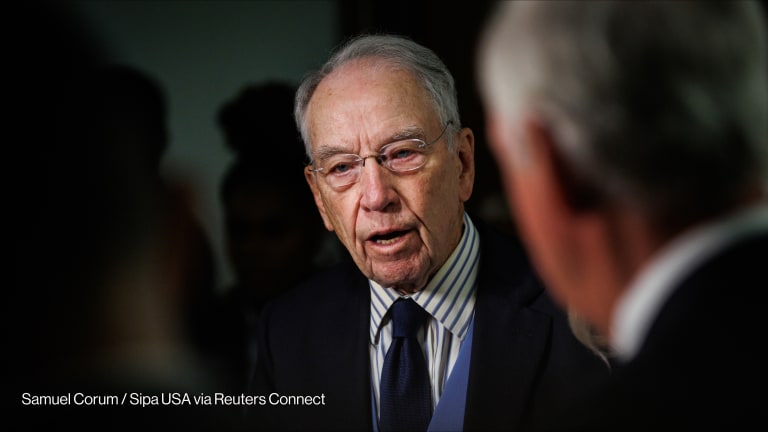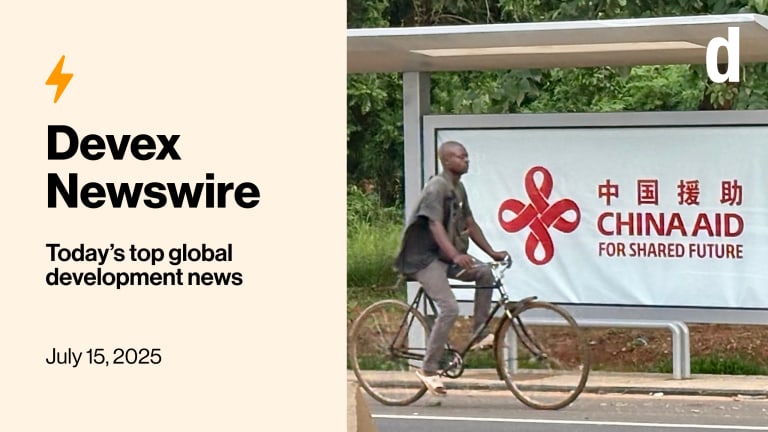EDITOR'S NOTE: The cause of most disagreements between the United States and China is the latter's lack of rule of law, says Elizabeth C. Economy in an inteview with Jayshree Bajoria, staff writer for the Council on Foreign Relations. For the full interview, please visit the council's Web site. A few excerpts:
The U.S. State and Treasury departments seem to be involved in the talks quite heavily. Does that lead to problems of coordination and maybe even disagreeing on how certain issues should be tackled, for instance climate change or energy?
There is a difference between how the Obama administration has decided to tackle the bilateral engagement with China and how the Bush administration ran the discussions. In both cases, we had the State Department and the Treasury Department involved in bilateral negotiations. They just didn't happen at the same time. The real change is that you now have both the State Department and the Treasury Department running the dialogue together. Inevitably, it gives rise to perhaps some kind of competition among issues. Which issues matter more, and are there trade-offs that need to be made among issues? If there is an area where there was probably some disagreement over who would manage the issue, it was climate change. Climate change had been handled under the Treasury Department, which made sense from the Chinese perspective because the Chinese view climate change as overwhelmingly an economic issue. It is managed out of the National Development and Reform Commission, which was the old planning department of the Chinese government. So it made sense from the Chinese side to have it run on the Treasury side in the United States. But the State Department clearly wanted it, and it was decided here in the United States that, at least from our perspective, it would be run out of the State Department. That is a shift, and we'll have to wait and see how the new interplay between climate change and the financial and security issues involved are negotiated now that it's being run out of State.
Writing in Foreign Affairs along with CFR Senior Fellow Adam Segal, you argue that "the current lack of U.S.-Chinese cooperation does not stem from a failure on Washington's part to recognize how much China matters, nor is it the result of leaders ignoring the bilateral relationship. It derives from mismatched interests, values, and capabilities." How do you propose Washington change that?
The only thing that's going to change the current situation is time. As China rises, it needs to develop a greater appreciation for its global impact and what the rest of the world will need from it. The United States can help China, as it has been [doing] already, to develop their legal system and the rule of law. This is fundamental to China's ability to be a responsible world power.
What issues should the United States prioritize in its talks with China?
Off the top of my head, I would say climate change because it is potentially game changing for the entire world in an overwhelmingly negative way. However, my second thought would be the rule of law. The rule of law underpins virtually every other issue. Whether we're talking about food and product safety, or environmental implementation of anything China might agree to when it comes to global climate change, or trade and investment barriers and intellectual property rights protection, all of them hinge on China having an effective rule of law. Without that, the relationship will continue to founder, because even though we have high-level agreement that we want to work on these issues, if China can't ensure that it will live up to its obligations, then we're going to continue to have serious conflict. From my perspective, the most important thing we can do is help them develop the rule of law; it is at the root of most of our conflicts.
What is the best way to address this issue?
We can do two important things. One is to continue the kind of work that we're already doing to help train Chinese enforcement officials, lawyers, and judges and share our expertise. That kind of capacity building, although it's a long-term process, is absolutely critical. The second thing we can do is to ensure that the full force of international public opinion is made clear to China when it doesn't adhere to global norms. There was a terrific opinion piece in the Financial Times that made the linkage between human rights, the rule of law, and business very explicit with regard to the case of Stern Hu [Rio Tinto's detained employee, an Australian citizen] and Rio Tinto. If China still wants to be a place for foreign direct investment, and if it wants to be a global trade and economic leader, it's going to have to play by the international rules of the game. Again, there may have to be some international pressure, not just from Australia but from the United States and others, helping China to understand that you can't simply arrest people and deny them legal representation because you'll begin to witness the impact of that, meaning foreign businesses will flee.








